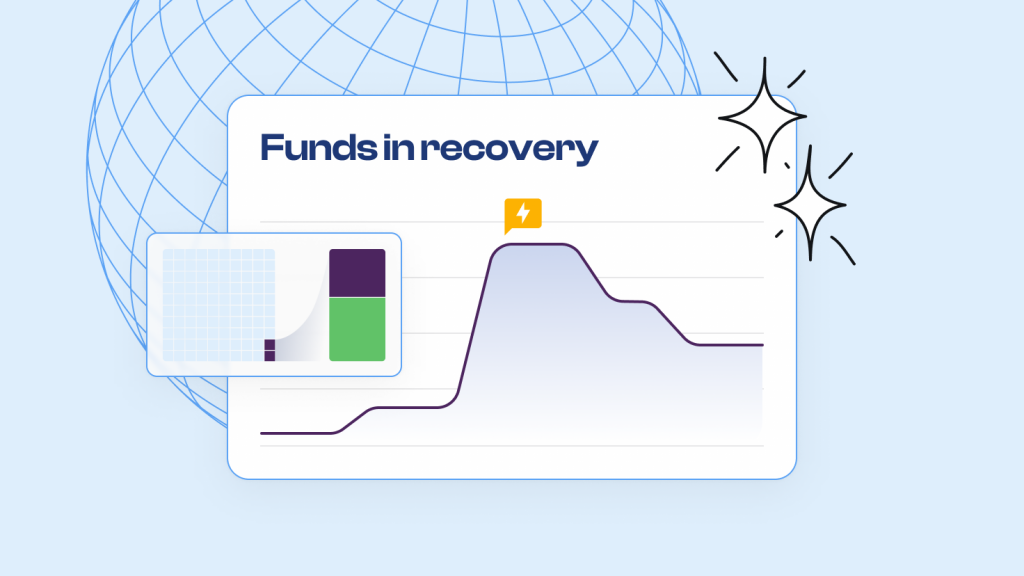Information about overdue cases can be found in your Mintos account, where we’ll update you about the ongoing cases. On the same page, you can also find a monthly summary of the recovery of each case.
Most overdue cases are due to temporary issues such as additional checks by the banks executing the payment. The issue typically gets resolved in a timely manner, and the payment goes back to normal without further complications.
Lending company statuses
The different statuses that can be given to a lending company on Mintos are active, overdue temporary, or overdue ongoing.
The status is active when Notes related to underlying loans from a lending company are available on the Mintos Primary Market and have no pending payments 7 days past due.
Overdue means pending payments are 7 days past due. Overdue is split into temporary cases and ongoing cases.
Overdue temporary cases
Overdue temporary cases happen when payments are delayed more than 7 days within the usual settlement process but are not considered ongoing cases. This can occur when the lending company has collected the money from the borrowers, however, payment processing has been delayed due to reasons outside the lending company’s and Mintos’ control.
Delayed payment processing could be due to diligence checks, which are a series of financial checks with the goal of preventing money laundering and other illicit activities. Delayed payment processing could also be due to currency control checks, which are government-imposed limits on the purchase and/or sale of currencies.
Overdue ongoing cases
Ongoing cases are further split into sub-statuses:
- Negotiating
- Resolved
- Restructuring
- Litigation
- Resolved
- Liquidation
Negotiating
We’re negotiating with the lending company to see if an agreement can be reached that would lead to the best outcome for investors.
Restructuring
The lending company and Mintos have reached an agreement. The lending company is repaying according to an agreed plan.
This could be due to:
- Agreed exit
- Repayment agreement
Litigation
No agreement could be reached, or the lending company has breached a previous agreement. We’ve taken the company to court, or we’re reviewing or carrying out other legal actions.
This could be due to:
- Enforcing claim rights
- Enforcing liquidation
- Other legal actions
Liquidation
The lending company is being liquidated. Its remaining assets will be used to pay off amounts owed by the company. Litigation can be a long process and comes with the risk that the full principal might not be recovered. Litigation is not always the best solution. Negotiating with the lending company is faster than litigation and typically increases the chance that investors will get their principal and interest back.
Resolved
The case has been resolved, and investors have received the recovered amounts. In cases where it wasn’t possible to recover 100%, any remaining amounts have been declared as unrecoverable.
Recovering investor’s money
Ongoing cases have good recovery chances. In rare cases, the underlying issue can be longer-lasting – such as the disruption of financial markets or the default of the lending company. While this means it might take a bit longer to recover investors’ money, our experience shows that often a significant percentage can be recovered.
Investors may receive money at different times. Recovered amounts are distributed in a specific order. That means some investors might receive money, while others might have to wait, depending on the order in which obligations are settled.
Suspension
We would stop new investments through the Primary Market if we either:
- identify reasons that make us significantly doubt that all the sums towards investors will be repaid, or
- If a lending company fails to pass on borrowers’ repayments to investors and/or honor its buyback obligation.
This would mean we would stop listing new Notes, as well as unlist existing Notes, so that they don’t get bought by strategies. If this ever did happen, we would inform investors – both by email and through the blog.
We don’t suspend the possibility of investors selling or purchasing Notes on the Secondary Market. In case of an unusual situation, the Secondary Market would be open and deals could take place, subject to the willingness of investors to trade.

